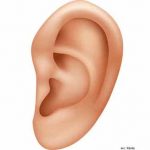Polymeric Materials And Coronary Angioplasty Devices
| Cardiovascular diseases are responsible for over 15 million deaths worldwide per year.1 The occlusion of vessels such as the coronary or peripheral arteries hinders the flow of blood to the heart, resulting in heart attacks (myocardial infarction) and often death. Percutaneous transluminal coronary angioplasty (PTCA), a minimally invasive endovascular procedure used to widen narrowed or obstructed arteries, is enabled in many ways by polymeric materials. This article will focus on PTCA, also known as balloon angioplasty. | |
ConclusionPTCA remains a critical treatment in coronary artery disease. The procedure is multifaceted and polymers play a critical role in most components of the procedure: The first inserted guide wire is coated with lubricious polymers such as fluoropolymers, the guide catheter is basically a three-layer polymer composite consisting often of a PTFE inner lumen, a metal or liquid crystal polymer middle layer wire mesh, and the outer layer consisting of stiffer polymers like high melting polyamides on the proximal end and lower modulus polymers like thermoplastic elastomers on the distal end (poly ether-block-amides, for example). Metal stents may one day be replaced with polymers and inorganic materials that can be 3D printed and exhibit shape memory to tailor the exact dimensions before and after expansion for patient-centric improved efficacy. Electronic-enabled bioresorbable polymers that can be left in place, provide extended blood flow over current standards, and degrade and excrete with no adverse events for the patient are making progress in many R&D labs around the world. |
|
| Author(s) | Source |
| George ER (ERG Polymers LLC) | Med Device Online, Guest Column | April 14, 2021 |
| This is a post of a scientific or business information. The information given here is checked thoroughly by “Implant-Register”. However we can´t be responsible for the content. The content usually is shortened to make it understandable for many. Read the linked original text if you are interested. Contact the publisher, if you have questions. You may inform us about changes of the information to improve the Register. | |
| Comments: n/a let us know |
|
Find NEWS and PUBLICATIONS here according to your interests or use the search box.









